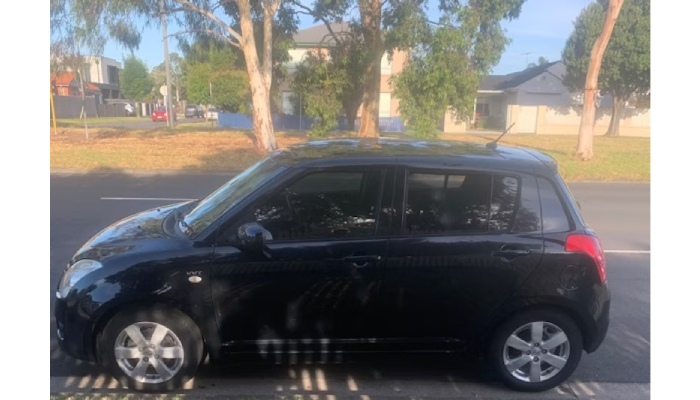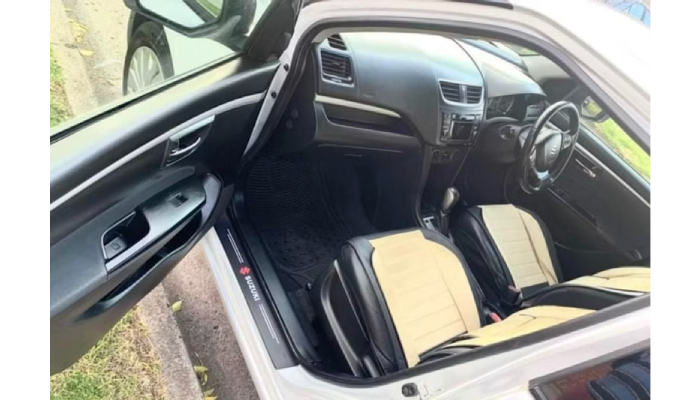Short-Term Vs. Long-Term Car Rentals: Which Option Is Right For You?
When it comes to transportation in Australia, renting a car offers flexibility and convenience that suits travelers, businesses, and locals alike. Whether you’re a tourist exploring the breathtaking Great Ocean Road or a professional relocating for work, car rentals in Australia provide tailored solutions to meet your needs. The choice between short-term and long-term car rentals largely depends on your travel plans, budget, and the duration of your stay. This guide explores the advantages and disadvantages of both options, helping you determine the best fit for your requirements.
What Are Short-Term Car Rentals?
Short-term Car Rentals In Australia typically range from a single day to a few weeks. They are popular among tourists, business travelers, and individuals who need a vehicle for a specific, limited timeframe. Most major rental companies across Australia, such as Hertz, Avis, and Budget, cater to this segment by offering diverse fleets and flexible pickup/drop-off points.
Benefits Of Short-Term Car Rentals
- Flexibility and Convenience
Short-term car rentals are ideal for spur-of-the-moment plans, weekend getaways, or day trips. With Australia’s vast network of rental agencies, you can easily book a car online or walk into a branch to secure a vehicle on short notice. - Variety of Vehicles
These rentals often allow access to a wider range of cars, from compact economy vehicles to luxury sedans, catering to both budget-conscious travelers and those seeking comfort. - Lower Commitment
Since rentals are for brief durations, there’s no long-term financial obligation. You can choose a car that suits your immediate needs and avoid worrying about monthly contracts or extended insurance coverage.
Drawbacks Of Short-Term Rentals
- Higher Daily Rates
While short-term rentals are flexible, they tend to have higher daily rates compared to long-term agreements. This could add up quickly for trips extending beyond a few weeks. - Limited Mileage
Some rental agreements impose mileage restrictions, which may not be ideal for extended road trips like driving across the Outback or exploring Tasmania.
What Are Long-Term Car Rentals?
Long-term car rentals usually last for several months, making them a popular choice for expats, students, and professionals on extended assignments. Many rental agencies in Australia offer special pricing plans and incentives for customers opting for long-term agreements.
Benefits Of Long-Term Car Rentals
- Cost Efficiency
Long-term rentals often come with significantly reduced rates compared to short-term options. Rental agencies provide discounts to incentivize monthly contracts, making them a budget-friendly choice for extended stays. - Consistent Access to a Vehicle
With long-term rentals, you enjoy the convenience of a car at your disposal without the need to rebook or renew contracts frequently. This is especially advantageous in remote areas of Australia where public transportation options may be limited. - Maintenance and Insurance Included
Most long-term rental packages include comprehensive maintenance and insurance coverage, saving you the hassle and expense of managing these separately.
Drawbacks Of Long-Term Rentals
- Upfront Commitment
A long-term agreement requires careful planning, as you are bound by the contract for a significant duration. Cancelling early might incur penalties. - Lesser Variety
While long-term rentals are cost-effective, the range of available cars may be limited compared to short-term options. - Cumulative Costs
For individuals with sporadic travel needs, renting for months may be more expensive than owning or using short-term rentals as needed.
Factors To Consider When Choosing Car Rentals In Australia
1. Duration Of Use
The length of your stay or travel is the most important factor. Short-term rentals are better suited for trips lasting a few days or weeks, while long-term rentals provide better value for extended periods.
2. Purpose Of Rental
For vacations or weekend getaways, short-term rentals offer flexibility. Conversely, if you’re relocating to Sydney or Melbourne for several months, a long-term rental can save costs and simplify logistics.
3. Budget
Evaluate your budget carefully. While short-term rentals may have higher daily rates, they can be more economical for brief trips. On the other hand, long-term rentals provide reduced rates for extended stays but may require upfront financial planning.
4. Type Of Vehicle Needed
Your choice of car depends on the nature of your travel. If you’re exploring Australia’s rugged terrains, a 4WD might be necessary, and long-term rentals often include better deals for such specialized vehicles. For urban trips, a compact car through a short-term rental might suffice.
When To Choose Short-Term Car Rentals?
- You’re on a holiday trip exploring cities like Sydney, Brisbane, or Perth.
- You only need a car for occasional use, such as a weekend drive to the Blue Mountains or Phillip Island.
- You prefer maximum flexibility without committing to long-term agreements.
When To Choose Long-Term Car Rentals?
- You’re staying in Australia for several months, whether for work, study, or relocation.
- You need a reliable mode of transportation for daily use without the hassle of owning a vehicle.
- You’re traveling to remote areas where public transport is limited, such as the Kimberley region or Kangaroo Island.
Conclusion
Whether you choose short-term or long-term car rentals in Australia depends on your individual needs, duration of stay, and travel plans. For tourists and occasional travelers, short-term rentals offer the convenience and flexibility needed for exploring Australia’s iconic destinations. On the other hand, long-term rentals cater to expats, students, or professionals who require consistent and cost-effective access to a vehicle over several months. By carefully considering your travel duration, budget, and purpose, you can select the ideal rental option to ensure a smooth and enjoyable experience across Australia’s stunning landscapes.





